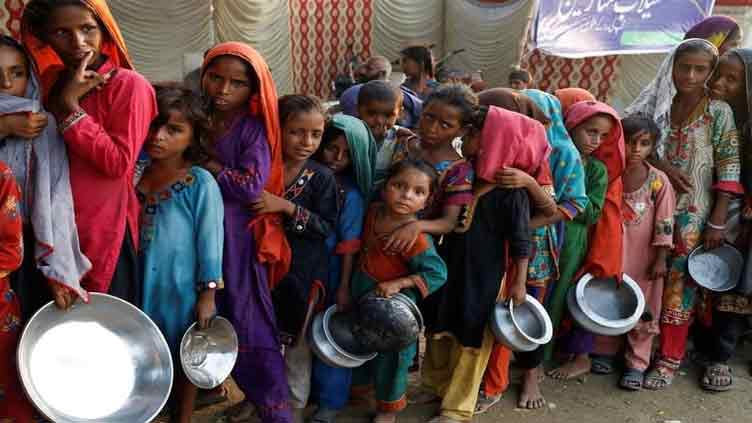Pakistan sees 25pc rise in agri financing but can it ensure food security?

Business
Increasing support prices not a solution, cut in cost of production needed to check food inflation
KARACHI/LAHORE (Web Desk) – Representing a 25 per cent increase on year-on-year basis, the State Bank of Pakistan says a total of Rs1.776 trillion had been disbursed to farmers in 2022-23 which was 97 pc of the yearly target Rs1.819tr.
However, many among the farming community are still not happy and calling for making the process easier as they cited documentation and other hurdles faced by the people at a time when Pakistan is a victim of climate change, directly and immediately affecting crop pattern. Hence, the agriculture sector requires a holistic approach to tackle the multidimensional challenge of providing food security to the masses.
This substantial jump was a result of the Kissan Package announced by Shehbaz Sharif-led government in a bid to boost the agriculture sector which has been grappling with rising production cost due to the expensive seeds, fertilizers, diesel and other inputs.
Read more: From India to Lagos, can 'superfood' millet make climate comeback?
At the same time, the government wanted to increase agriculture production amid rising import bill and the food security-related issues faced by the masses amid the unprecedented inflation.
The central bank says the unprecedented performance was owed to the collective efforts of the financial institutions and various initiatives taken in the backdrop of several challenges, including the devastating floods of 2022, rising input costs and monetary tightening in recent years.
Among the problems listed by the farmers is the requirement of land documents to mortgage the loan. It means many youngsters are left out as the land is usually registered under their parent’s name thanks to the cultural issues.
Read more: Billions of people are paying the price of broken global food systems: Guterres
Despite the fact that the report is encouraging, the government needs to do more for ensuring that the availability of loans is easier and covers wider population, especially the small and medium-size landholders.
But it is not just agri financing as the country needs to adapt itself the new realities induced by global warming – ranging from higher temperatures, erratic rains and droughts to water scarcity and soil degradation.
Meanwhile, just add the rising input prices to the equation and you will see farming is no more sustainable for many.
However, the overall impact is even more devastating as the rising cost of production and transportation of agri produce means food inflation would remain a constant, directly resulting in food insecurity ironically in a country which has an agriculture-based economy.
Thus, the government can’t persist with increasing the support prices for various crops. It must find ways and means to reduce the food prices for end consumers by the slashing the cost of production.
But perhaps the even bigger challenge is of working on crop pattern as the global warming as reflected by extreme weather events means the traditional sowing and harvesting arrangement can’t withstand the mother nature.

